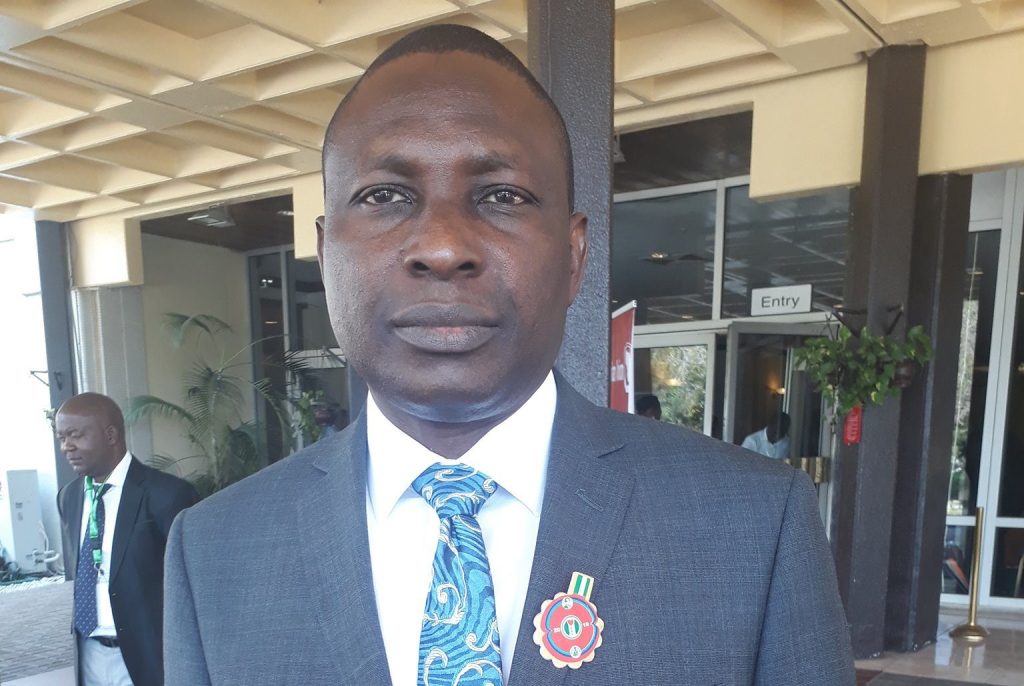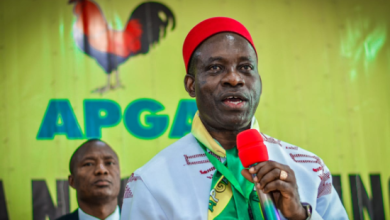EFCC Chairman Warns of Rising Virtual Asset Scams in Africa
EFCC warns that fraudsters are using virtual assets like crypto to run large-scale investment scams.
Chairman Olukoyede urges public education and vigilance, saying ignorance fuels financial exploitation.
The Chairman of the Economic and Financial Crimes Commission (EFCC), Mr. Ola Olukoyede, has raised concerns over the increasing use of virtual assets in investment scams across Africa, cautioning that digital technologies are becoming powerful tools in the hands of fraudsters.

Olukoyede’s warning was conveyed through the Ilorin Zonal Director of the EFCC, Mr. Daniel Isei, during a public lecture held in Ilorin to commemorate the 2025 African Union Anti-Corruption Day. The event took place at the Sinclair Hotel, GRA, with the theme centered on the evolving threat of financial crimes in the digital age.
Speaking on the topic, “Understanding Virtual Assets & Investment Scam,” Olukoyede noted that Africa’s efforts to combat corruption are being hindered by an increase in illicit financial activities, particularly those involving money laundering and digital asset fraud.
He stressed that while virtual assets such as cryptocurrencies and digital tokens have legitimate uses, they are increasingly being weaponized by criminal elements.
“Technology is advancing rapidly, and while virtual assets were created for legitimate financial innovation, criminals are exploiting them for money laundering and fraudulent investments,” Olukoyede stated.
He revealed that recent EFCC investigations have uncovered cases where corrupt individuals, including politicians, concealed illicit funds in cryptocurrency wallets to avoid detection by authorities.
Olukoyede also warned of the rise in fraudulent investment schemes that promise quick and unrealistic returns, often targeting financially vulnerable individuals. He cited the CBEX scam as a notable example, highlighting how poor investor education and lack of due diligence can enable such frauds to thrive.
“The CBEX case showed how failure to conduct due diligence and report suspicious transactions on time can lead to devastating losses. No investment scam can succeed without the negligence of the investing public,” he added.
Despite these challenges, Olukoyede reassured the public that the EFCC is staying ahead of fraudsters by leveraging intelligence, specialized training, and innovative investigation techniques. He stressed the importance of public awareness and collective action in the fight against virtual asset-related fraud.
“Virtual asset and investment fraud are preventable. The key is education, vigilance, and timely reporting. This interactive forum is a step in the right direction,” he said.
He also urged experts present at the forum to simplify technical knowledge on digital assets for the average Nigerian, saying public ignorance often gives scammers an advantage.
In a supporting lecture titled “Understanding Virtual Assets and Investment Fraud,” Assistant Chief Superintendent of the EFCC, ACE II James Allison, further broke down how these scams operate.
Allison explained that fraudsters are capitalizing on the public’s limited understanding of digital tools like cryptocurrencies, NFTs, and unregulated trading platforms. He noted that victims are often lured by fake promises of high returns and pressure tactics.
“Fraudsters are increasingly taking advantage of people’s lack of understanding of virtual assets. They dangle unbelievable returns on investment, create fake trading platforms, and often vanish without a trace once they secure their victims’ money,” Allison said.
He shared real-life cases from EFCC investigations, including stories of young Nigerians who lost large sums to Ponzi-style schemes disguised as crypto investments. He warned against common red flags such as guaranteed profits, vague company details, and lack of regulatory approval.
To avoid falling victim, Allison advised: “Research thoroughly before investing, verify regulatory compliance, and never trust unsolicited offers. If it sounds too good to be true, it’s probably a fraud.”
The event concluded with a call to action, urging participants to engage in open, fact-based conversations and recognize their role in combating corruption.
Attendees included representatives from civil society, academia, security agencies, youth groups, and the media. Discussions revolved around the importance of transparency and citizen engagement in building a corruption-free Nigeria.



